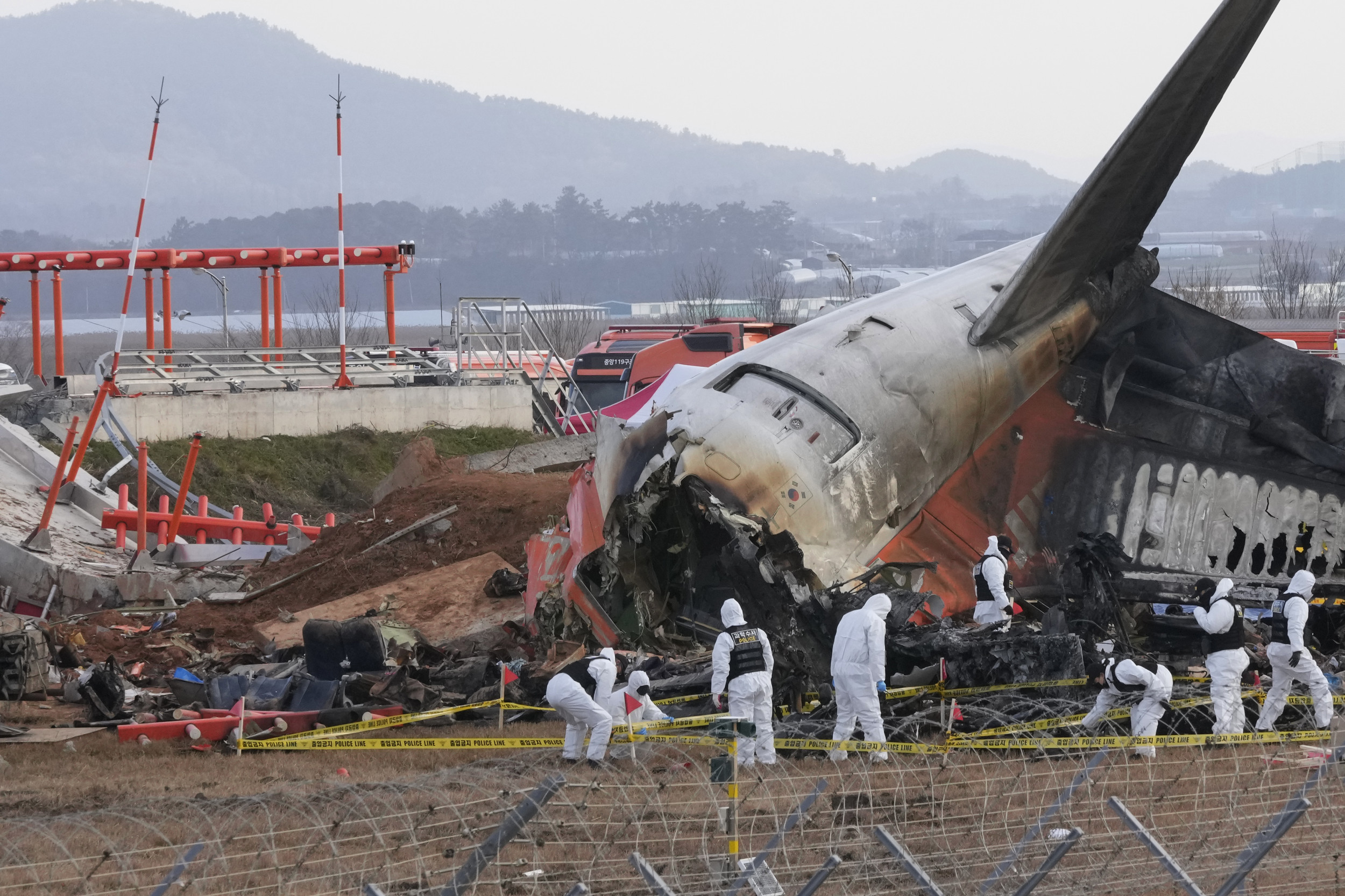The serene skies over South Korea turned grim on December 29, 2024, as Jeju Air Flight 7C2216, a Boeing 737-800, met with disaster during an emergency landing attempt at Muan International Airport. Out of the 181 occupants, 179 lives were tragically lost, marking one of the deadliest aviation disasters in the country’s history. This devastating incident has left South Korea grappling with grief and raising pressing questions about aviation safety.
The ill-fated flight, which originated from Bangkok, Thailand, reported an emergency just moments before its scheduled landing. The pilot declared a bird strike, which reportedly compromised the aircraft’s landing gear. In a desperate bid to touch down, the plane skidded off the runway, collided with a concrete barrier, and burst into flames. Witnesses described the scene as a harrowing spectacle, with rescue teams battling flames to recover survivors.
Among the casualties were 175 passengers and four crew members, including a three-year-old boy returning from his first family vacation. The tragedy spared only two lives—both crew members—who are currently hospitalized with serious injuries. The overwhelming loss has sent shockwaves through South Korea, prompting the government to declare a seven-day national mourning period.
Authorities have initiated an extensive investigation to determine the exact cause of the crash. Preliminary findings suggest the bird strike may have led to critical mechanical failures, but officials emphasize the importance of analyzing both black boxes, which were recovered from the wreckage. One of the recorders, however, sustained partial damage, potentially complicating efforts to piece together the final moments of the flight.
As the nation mourns, memorial services and tributes are being held to honor the victims. This incident has also reignited debates over aviation safety protocols, particularly regarding bird strikes and emergency response measures. The tragedy underscores the need for continuous advancements in aircraft safety systems to prevent such catastrophic outcomes in the future.
The road ahead for the families of the victims and the country as a whole will be fraught with grief and reflection. Yet, as South Korea seeks answers and accountability, the lessons learned from this disaster could pave the way for a safer aviation industry, ensuring that such a tragedy is never repeated.







